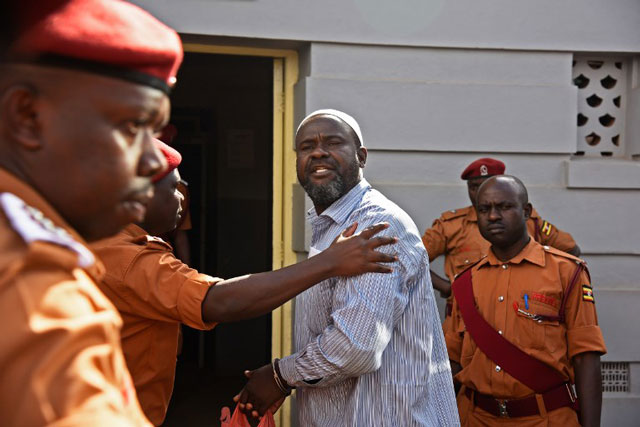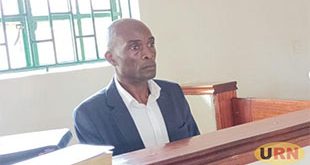
Ugandan leader of shadowy rebel group in court over mass murder charges
Kampala, Uganda | AFP | The Ugandan leader of a shadowy rebel group operating in the Democratic Republic of Congo appeared in court Monday on charges of mass murder and crimes against humanity.
Jamil Mukulu, leader of the Allied Democratic Forces (ADF), has been in detention since he was arrested in Tanzania in April 2015 and extradited to Uganda later that year.
The ADF is a Ugandan Muslim rebel group whose basic motives and ideology remain unclear but regional governments have alleged links to international jihadist movements.
The start of the pre-trial hearing marks the first time Mukulu has appeared in court since he was charged in July 2015.
In the court precinct Mukulu protested his innocence and blamed the Ugandan government for a series of murders of prominent Muslims that authorities have pinned on the ADF.
“I’m not a murderer. They want to kill us,” Mukulu shouted to journalists.
He appeared alongside 34 handcuffed and shackled co-accused who all alleged via their lawyers that they had been tortured while in detention.
The hearing marks the start of a convoluted judicial process at the Ugandan High Court’s International Crimes Division – which was specially set up a decade ago to try crimes allegedly committed by the Lord’s Resistance Army, another rebel group.
The ADF started out in 1989 with the aim of overthrowing Uganda’s President Yoweri Museveni, who was seen as hostile to Muslims. It absorbed other rebel factions in its ranks and started carrying out attacks in 1995.
Forced westwards by the Ugandan army, the group relocated most of its activities to the DRC, finding a lucrative niche in its lawless, resource-rich east.
Its rollcall of crimes includes mass killings and maiming using machetes, the use of child soldiers and rape, according to the UN.
While regional governments and the UN have blamed the ADF for a number of attacks on civilian and military targets, independent researchers say the group is often used as a cover by armed actors with an ulterior motive, including Congolese soldiers.
Kristof Titeca, an academic at the University of Antwerp who specialises in the ADF, is one of several who argue that the group is not responsible for all the violence blamed on them.
“The violence and attacks attributed to the ADF in the DRC have always been part of a very murky situation, in which a variety of armed actors attribute and cover up their actions as ‘ADF’ actions,” he told AFP.
 The Independent Uganda: You get the Truth we Pay the Price
The Independent Uganda: You get the Truth we Pay the Price



